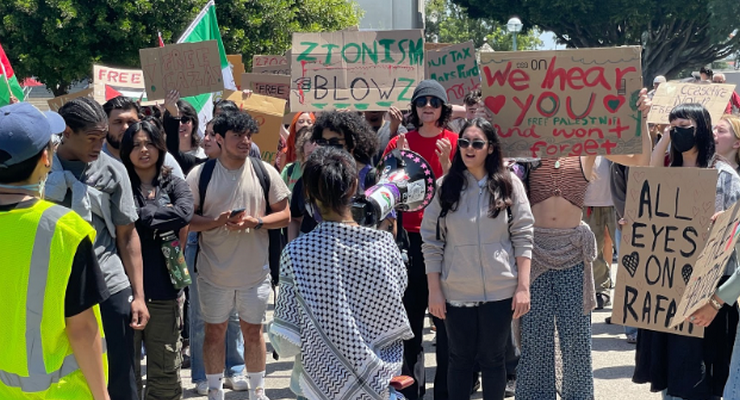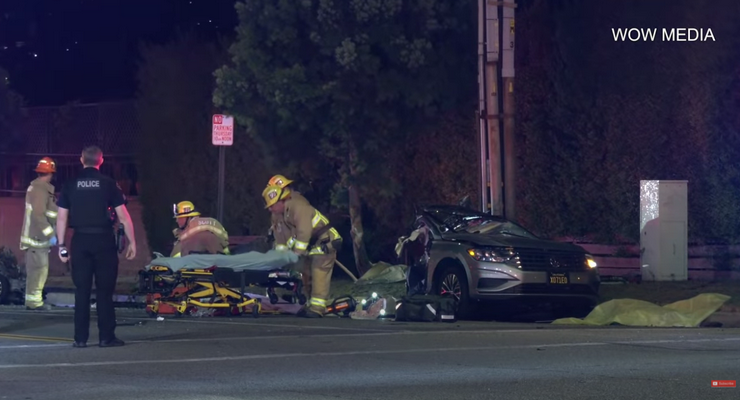
A Pasadena Police officer who is a rising star in the the specialized arena of mental health practices within the law enforcement community has become the face of the Police-Mental Health Collaboration (PMHC) Toolkit video produced by the Council of State Governments Justice Center for use all over the United States.
Officer Domino Scott-Jackson, who is respected for her expertise not just in Pasadena, but regionally and nationally, was noticed during a training presentation she was presenting in Washington, D.C., last January.
The Toolkit video in which Scott-Jackson features prominently will provide law enforcement practitioners with a compendium of resources that will guide agencies in their development or enhancement of their police-mental health collaboration programs.
“Knowledge is power and I feel that if I can send officers out in the field with more knowledge and more tools for their tool box, then they will be able to handle mental health crisis calls better and foster better outcomes for all involved,” explained Scott-Jackson.
Scott-Jackson has been with the Pasadena Police Department for 17 years starting as a police cadet, moving into being a Park Safety Specialist and eventually becoming a patrol officer for the past twelve years.
Her academic pursuits include a B.A. in Sociology and an M.A. in Marriage and Family Therapy, which propelled her career into new territory three and a half years ago.
“In February 2013, I was assigned to the Pasadena Police Department’s Homeless Outreach Psychiatric Evaluation Team. The goal of the unit is to ‘plant the seed’ for those who [are undecided] on whether or not they will accept services. Our hope is that the population we deal with will willingly accept services when they are ready,” said Scott-Jackson.
The Homeless Outreach Psychiatric Evaluation Team, known as the H.O.P.E. team, was established in 2002 with a primary focus to conduct homeless outreach and respond to mental health crisis calls. The Department of Mental Health provides a clinician who teams up with an officer as a co-response team, according to Scott-Jackson.
The H.O.P.E. team and other established mental health teams meet regularly to discuss trends and best practices as a coalition she founded called Los Angeles County Mental Evaluation Teams (LACMET).
“We are proud to say that we now have 25 police agencies throughout Los Angeles County as well as Department of Mental Health clinicians that participate in our monthly training meetings,” said Scott-Jackson whose training topics include conservatorship process, de-escalation techniques, Lanterman–Petris–Short laws regarding the involuntary civil commitment to a mental health institution, firearm seizures and homeless outreach services.
Scott-Jackson is also a member of National Organization of Black Law Enforcement Executives (NOBLE) and sits on the executive board of the San Gabriel Valley Chapter.
She attended the NOBLE 40th Anniversary Training Conference in Washington D.C. in January to give a presentation on mental health awareness in lieu of being nominated to receive the 2016 Outstanding Associate Member of the Year Award.
“While in D.C., Nikki Smith-Kea, Law Enforcement Policy Analyst from Council of State Governments Justice Center attended my training presentation. After my training presentation, she told me about the Police-Mental Health Collaboration (PMHC) Toolkit that her team, along with the Bureau of Justice Assistance, were putting together that will be readily available for police agencies nationwide. Smith-Kea further requested my participation as a subject matter expert for the video being produced for inclusion on the Police-Mental Health Collaboration (PMHC) Toolkit,” explained Scott-Jackson who returned to D.C. in August to film the video and was treated to a tour of the White House West Wing.
Scott-Jackson’s expert instruction is not limited to the video that likely will be seen by virtually every police agency nationwide.
“I have been teaching at the Center for Criminal Justice, California State University of Long Beach since March 2015. I, along with five other instructors, teach an 8 hour Mental Health Decision Making course for police officers,” said Scott-Jackson.
“I hope to change the mindset of police officers and raise awareness about their response to mental health crisis calls for services. Additionally, I hope that the police officers that attend our course, at minimum have a better understanding of how to respond and deal with a person who is experiencing a mental health crisis, which includes taking more time to evaluate the behaviors of the person in crisis, building rapport and influencing behavior change.”
Although her specialized efforts have made waves all the way to the east coast, Scott-Jackson is focused on serving Pasadena first and foremost. She is a member of the Pasadena Police Department’s Crisis Negotiation Team, the Peer Support Team and a national trainer for the “Law and Your Community” curriculum that is taught to young people that provide suggestions on how to appropriately interact with the police.
“One of my first interactions with the police department was my introduction to the Police Explorer Program in 1994. I have been in the department ever since. This is home for me,” said Scott-Jackson.













 0 comments
0 comments



